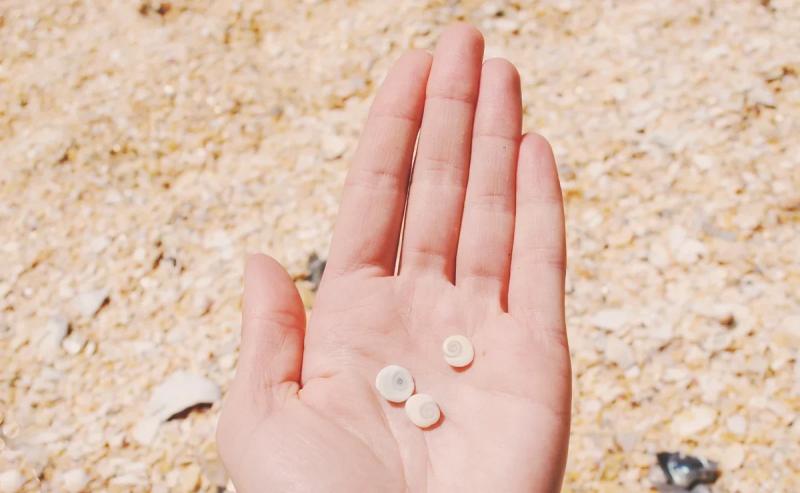
Many tourists are not averse to taking a little sand, pebbles, shells or corals as a beach souvenir. But in some places, such an act is considered a violation of environmental regulations or theft of natural resources. You can get a fine of up to 3 thousand euros. And sometimes — and 100 thousand dollars.
The temptation to bring something home from a vacation at sea is great. It’s more eco-friendly, more personal, and, after all, it’s free. However, not everything is so simple at first glance. In many countries, serious fines are threatened for a handful of sand, small pebbles, shells or coral fragments from the beach.
Taking sand from Italy with you as a souvenir is prohibited and punishable. “Any transportation of sand, pebbles or quartz stones from sandy beaches, even in minimal quantities, is prohibited by law,” warns the Italian Ministry of Foreign Affairs.
In Sardinia, fines from 500 to 3,000 euros are threatened for violating these requirements.
In the resort of Stintino in Sardinia, things are even stricter: just putting an ordinary towel on the sand costs 100 euros.
It turns out that too much white sand clings to the fabric and thus, a precious natural resource is carried away from the beach. Therefore, a towel on Stintino beach is allowed to be spread only on a special mat.
In Hawaii, sand removal from beaches such as Papakolea and Punaluu beaches can cost 100 thousand dollars. These beaches are famous for the black volcanic sand that savvy tourists sell on the Internet.
A ban on the export of sand has also been introduced on certain beaches in Australia, the Bahamas and Malta.
Snow-white Thai sand or a flower in a pot will not be missed when leaving Thailand either: the land and sand in the country belong to the king, not tourists.
In the UK and Greece, there is a taboo on collecting pebbles in some regions, as stones are a natural protection of the coastline.
In both countries, the penalty for this is up to 1,000 euros. In particular, such bans are relevant in Wales and on the Greek island of Skiathos.
IT IS ALSO BETTER TO REFRAIN FROM EXPORTING CORALS AND SHELLS
It is also better to refrain from corals and even pieces of them as souvenirs. Unprocessed corals are prohibited from being exported from Thailand, Egypt, Sri Lanka, Malaysia, Vietnam, Seychelles, Cuba and Maldives.
The exception is processed and bought in a souvenir shop products, and with a receipt confirming the purchase. In Egypt, the fine for the export of “illegal” coral can be 1 thousand dollars or more.
Egypt, Thailand, Jordan, Vietnam and Sri Lanka also prohibit the export of shells. Similar rules regarding corals, fossils and shells apply in Turkey, but they are not so widely known. Turkish customs may consider them natural treasures or historical artifacts.
Therefore, if you want a souvenir of the sea, it is better to buy it at a souvenir shop and have a purchase receipt with you. You can buy with a check, but you can’t pick it up from the ground or from the sea.
IT IS BETTER TO GET ACQUAINTED WITH THE CUSTOMS RULES AND PROHIBITIONS OF THE COUNTRY OF REST IN ADVANCE
In case of inspection, the stones, shells and corals collected on the beach will simply be taken away. In the worst case, a large fine or even a prison sentence is threatened.
In order not to get into an awkward situation at customs when leaving a foreign country, it is better to find out beforehand what can and cannot be exported from the country where the beach holiday is planned.
As a rule, all such information is contained in the memos of tour operators about the country of rest, which tourists receive before their trip or which are always available on the websites of companies. They just need to be read.
Elena Myagkova

